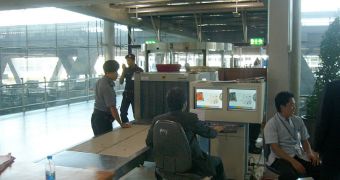Researchers have identified a security hole in airline boarding passes that could be leveraged by malicious actors to get illegal items past airport security.
The United States Transportation Security Administration’s pre-screening system expedites airplane boarding, as not all passengers are thoroughly screened. However, the entire process relies on one element of surprise: some passengers can be randomly selected to undergo conventional security screening.
This element of surprise is taken out of the equation because the boarding passes obtained by travelers before the flight contain a barcode that can be used to predict if the customer will be screened properly.
According to John Butler, the blogger who identified the flaw, anyone with a basic technical training could read the barcode and determine whether they would be screened or not.
For instance, a smartphone with a barcode reader installed on it is more than enough to obtain the valuable information.
Experts told The Washington Post that the vulnerability should be taken seriously because it could allow terrorists or smugglers to take illegal items on board.
Considering that the boarding passes could be obtained 24 hours before the flight, a group of malicious actors could ensure that the individuals who are not marked for conventional screening take the illegal items.
“The entire security system depends on the randomness. If people can do these dry runs, the system is vulnerable,” security expert Chris Soghoian told The Washington Post.
The same source highlights the fact that news of the vulnerability also reached the ears of Senator Charles Schumer who stated that the issue “has the potential to be a gaping flaw in the system that would be all too easy to exploit.”

 14 DAY TRIAL //
14 DAY TRIAL //